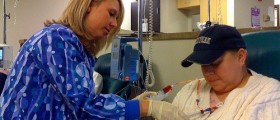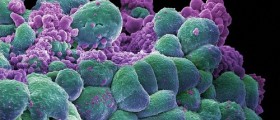
Breast cancer is a very complex and difficult disease, taking numerous lives each year. For the purpose of classifying this illness, we can divide it into two main types. The first is estrogen receptor positive breast cancer, going hand-in-hand with growing estrogen levels of the patient and the other is estrogen receptor negative breast cancer, having no connection with these levels, taking place without estrogen escalation. Endocrine therapy for breast cancer is hormonal therapy connected with estrogen receptor positive breast cancer, being responsible for about 65% of cases of this illness.
Hormones and Breast Cancer
Basically, hormones are messages which are delivered around our body, triggering, regulating and stopping numerous functions it performs. Hormones are produced by our endocrine system, consisting of numerous glands and tissues.
Endocrine therapy for breast cancer is only one treatment modality which can, together with various other types of medical interventions such as chemotherapy, radiation therapy and surgery, help patients enter remission. Thus, different combinations of these therapies may help people with breast cancer to recover and overcome this cruel illness. Usually, cancer is treatable when detected early, before it manages to spread and affect other organs in the body. When breast cancer is caught in its early phase, the chances of the patient living for at least 5 more years are 95%.
The Treatments
When it comes to hormonal therapy for breast cancer, the main purpose of this approach is blocking estrogen production in the body. Tumor cells need estrogen in order to grow. So, the production and delivery of this hormone need to be inhibited.
One of the possible ways of stopping estrogen from being produced is surgical removal of the ovaries. Estrogen is produced by the ovaries. Thus, the removal of these organs will result in lack of the tumor supply with estrogen. That way, the tumor will not be capable of growing or spreading, being treated more easily and successfully.
However, this procedure is not a good option for younger women, who still can and desire to have children. Removal of the ovaries triggers immediate menopause. Therefore, women who are not in their menopause usually choose alternative treatments.
One of these is drug treatment. Selective estrogen receptor modulators or SERMs are used for treating breast cancer in premenopausal women. These medications block estrogen delivery to breast tissue, triggering many menopausal side-effects in the rest of the body. However, SERMs are know to decrease the size of the tumor, having a satisfactory success rate, being effective in about 60% of cases. Unfortunately, the side-effects of these drugs are inevitable, varying in type and intensity.
Aromatase inhibitors are yet another type of medications for blocking estrogen in breast cancer patients. These drugs are considered to be better than SERMs. Subsequently, these are used for treating more advanced stages of breast cancer in post-menopausal women. Nevertheless, when used in premenopausal women, AIs can trigger ovarian cysts or osteoporosis.

















Your thoughts on this
Loading...